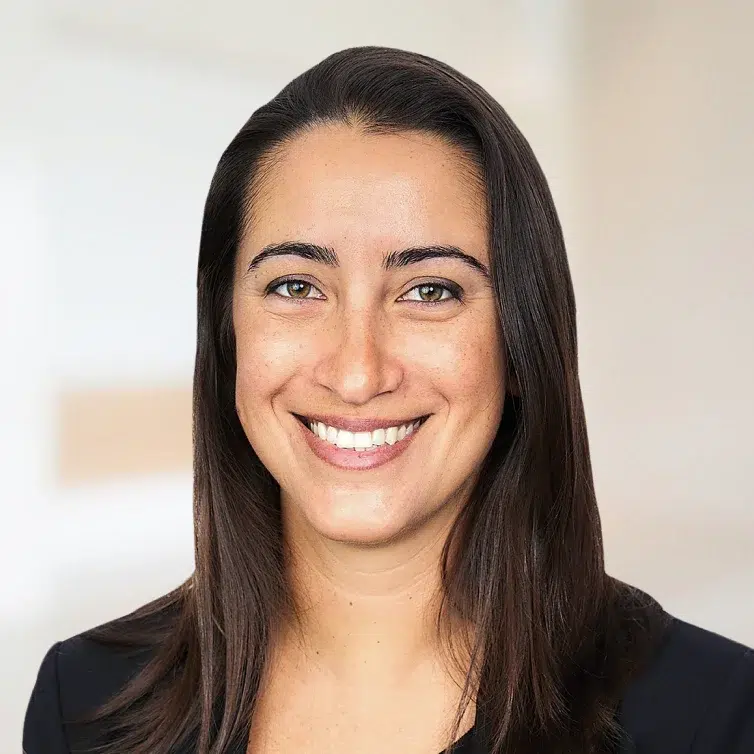
As we wrap up 2024, it’s the perfect time to ensure that your finances are in tip-top shape. From maximizing retirement contributions to implementing tax-saving strategies, these nine simple yet effective steps will help you optimize your finances before the calendar flips to 2025. And remember, you don’t have to manage it all alone. Aspiriant wealth managers are here to guide you—working closely with our clients as part of our comprehensive wealth planning and investment management services. This financial planning checklist will help you get started, so let’s review these actionable items:
1. Maximize retirement contributions
Don’t leave money on the table. Before the end of the year, contribute as much as possible to your retirement savings vehicles. In 2024, you can contribute up to $23,000 to your 401(k) (or $30,500 if you’re 50 or older by the end of the year). For IRAs or Roth IRAs, the limit is $7,000 and an extra $1,000 if you’re 50 or older.
Pro tip: Consider a Mega Backdoor Roth conversion if your plan allows, or a partial Roth conversion if you’re in a lower tax bracket this year. A Mega Backdoor Roth conversion lets high earners contribute beyond regular Roth limits using after-tax contributions in a 401(k), while a partial Roth conversion allows you to convert a portion of your traditional IRA to a Roth IRA. This tax strategy benefits those expecting to be in a higher tax bracket later or looking to diversify their tax strategies for retirement. While you have until April 15, 2025, to make IRA contributions, Roth conversions must take place by December 31, 2024. Don’t delay maxing out your accounts as part of your year-end financial planning.
2. Take required minimum distributions (RMDs)
If you’re 73 or older, make sure you’ve taken your required minimum distribution (RMD) from traditional IRAs and other tax-deferred accounts. by December 31, 2024. It’s calculated based on your December 31, 2023 account balance and IRS life expectancy tables. Your RMD is taxed as ordinary income and missing the distribution deadline could result in a penalty of 25% on the amount not withdrawn on time.
Bonus: If you’re charitably inclined, consider a Qualified Charitable Distribution (QCD) to meet your RMD and give back to a cause you care about. By directing some or all of your RMD (up to $100,000 per year), your funds avoid tax, and you can feel good about supporting a qualified charity.
3. Harvest tax losses
If the market’s been rough on your portfolio, tax loss harvesting can turn those losses into a win, from a tax perspective. Selling investments that have declined in value since you purchased them allows you to offset capital gains and potentially reduce your income tax bill. You can even deduct up to $3,000 per year against your ordinary income. This is a key part of year-end financial planning that can significantly lower your tax burden.
Example: If you have $50,000 in gains this year but $75,000 in losses, you’ll end up with a $25,000 net loss, meaning you would not pay any tax on the gains. You could then use carry your unused losses forward to future tax years when you can offset additional gains.
4. Plan your charitable giving
Looking for a tax break while supporting a cause? Charitable giving strategies can help you do both. If you don’t itemize your deductions, consider bunching several years’ worth of donations into this year to push your deductions above the standard deduction, reaping the tax benefits of donating to a meaningful cause. If you wish to donate over many years but want an increased charitable deduction this year, consider using a Donor-Advised Fund (DAF), which can provide flexibility for your future charitable donations. A DAF is also a great way to use appreciated securities to make your charitable donations, thereby avoiding capitals gains and getting a charitable deduction at the same time.
5. Review your concentrated stock strategy
Do you hold a large portion of your wealth in company stock? Avoid a potential tax hit by being strategic about when and how much you sell.
It’s also helpful to have a holistic strategy when managing your equity compensation, including Restricted Stock Units (RSUs). Non-qualified Stock Options (NQSOs) and Incentive Stock Options (ISOs), as these forms of compensation come with multiple tax considerations. For example. NQSOs are taxed as ordinary income when exercised. You may have an opportunity to spread tax implications over multiple tax years by exercising just enough NQSOs before the end of the year to stay within your current income tax bracket. This is another important consideration for your year-end financial planning.
To add the benefit of reducing your concentration in any given company, you may sell the shares you exercise with little to no tax implications if done immediately or as a cashless exercise. This strategy can allow you to diversify your portfolio and reduce risk. Holding too much of your wealth in company stock increases your concentration risk, so spreading sales over time and reinvesting proceeds in a diversified portfolio can offer greater protection from market volatility while helping to secure your long-term financial goals. This approach not only reduces your exposure to one company but also aligns with a broader, long-term investment strategy.
6. Use your health and medical accounts
- Max out your Health Savings Account (HSA): If you have a high-deductible health plan, contributing to your HSA gives you triple tax benefits (tax-free contributions, growth, and withdrawals for qualified expenses). You can contribute up to $4,150 (or $8,300 for families) in 2024.
- Flexible Spending Account (FSA): Don’t forget to use your Flexible Spending Account before year-end. Many plans don’t allow rollovers, and unused funds could be forfeited.
7. Boost your education savings
If you’re saving for a loved one’s education, contribute to a 529 plan before the year is up. Each individual may contribute up to $18,000 per beneficiary or take advantage of the five-year lump-sum election to contribute $90,000 upfront. When a 529 plan is used for qualified education expenses the entire value is tax-free, including the initial contributions and all of the growth over time.
8. Have financial conversations with loved ones
The holidays offer a unique chance to talk about money with family members. Whether it’s discussing your estate plan or educating children about financial literacy, starting these conversations early can help everyone feel more prepared for the future.
| Helpful advice
Talking about money doesn’t have to be scary. In fact, it can be empowering. Sandi Bragar, our Chief Client Officer and co-host of the Money Tales podcast, gives us three simple steps to start those important conversations. 1. First, dig deep and identify your core values—what truly matters to you? 2. Then, reflect on your money story—what did you learn about finances growing up? 3. Finally, be curious and open as you put those thoughts into words. It’s all about fostering understanding, and when you’re clear about your values, those money conversations become so much easier. |
9. Update your estate plan
Life changes such as births, deaths or changes in marital status mean it’s time to revisit your estate plan. Ensure your trust, pour-over will, power of attorney and healthcare directive are up to date and reflect your current wishes. This is especially important given potential changes to the Tax Cuts and Jobs Act (TCJA), which could impact estate tax laws in the coming years.
Looking ahead: Set your 2025 financial New Year’s resolutions
If you don’t get everything on this list done by the end of the year, don’t worry. The start of a new year is the perfect time to set some financial New Year’s resolutions. By tackling these goals in 2025, you’ll set yourself up for long-term financial success. Consider resolutions like:
- Check-in on your health: All aspects of your health are important—physical, mental, emotional and financial. For your financial check-in, you can identify your cash needs. Once you identify your personal needs, the next planning steps become easier.
- Identify your philanthropic or gifting goals: If giving is an area of focus for you, this may be an especially important year given potential changes to our existing tax law.
- Investing in personal growth: Whether through education, career development or learning new skills, investing in yourself can have both personal and financial rewards.
For more ideas on starting the year off right, check out our article on 15 Money-Smart Things to Do in the New Year.
Wrapping up 2024: Partnering for your financial success
Now that we’ve walked through these essential year-end financial planning strategies, you’re well on your way to finishing 2024 strong. Each step you take—from managing retirement contributions to planning your taxes—brings you closer to the financial future you’ve worked so hard to build. And remember, you don’t have to go it alone because our wealth managers are here to guide you every step of the way.
As we look toward 2025, know that every decision you make today is laying the foundation for your future. Whether it’s refining your investment strategy, planning your legacy or optimizing your wealth, we’re by your side with our Total Wealth Management approach. Talk with us about how we can help you optimize your wealth strategy.

 Talk to us
Talk to us 















